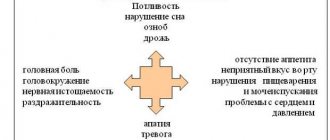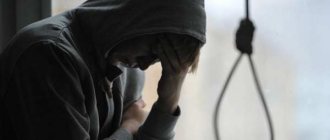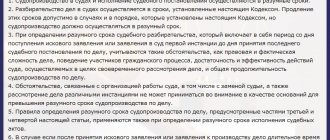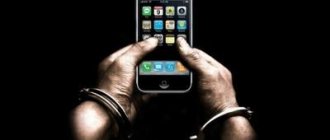There are situations in everyday life when a person’s inaction can cause injury or even death to another person. Such cases can result in actual criminal penalties. Abandonment is a criminal act and consists of inaction or refusal to help a person who is in dire need of it. The legislation regulates a sufficient number of factors due to which failure to provide assistance is a crime.
Left in danger
Assessment of criminal omission (leaving in a dangerous situation)
The legal framework of the Russian Federation establishes punishment for inaction and refusal to help a person who is in vital need of it.
Article 125 of the Criminal Code of the Russian Federation indicates that for this kind of crime a conviction and real criminal punishment will be issued if conditions exist that will become the basis for prosecution under the actual law for leaving in dangerous conditions:
- if the person was in a condition that threatened his health and could lead to death;
- the victim could not independently help himself due to his young or old age (child or elderly), due to the presence of diseases or due to being in a weak state due to injury, injury, and you did not call emergency help and did not take action for preserving human health and life;
- if you have the skills to provide assistance, but you have not used them;
- when the current legislation or other status obliges you to take responsibility for the victim, but due to a certain situation you, on the contrary, exposed him to dangerous factors (this applies to citizens with certain diseases, an elderly person or a minor).
Due to inaction, a person may face criminal penalties
From the above it follows that criminal liability will occur when security has not been properly ensured:
- minor;
- an elderly person;
- incompetent person.
You need to understand that the injured person will have to answer according to the law if they were not taken care of and he fell into circumstances that caused injury, deterioration in health for any other reason, or death.
Attention ! If you were the culprit of a health or life-threatening situation and a person who subsequently suffered got into such conditions, and you did not make any efforts to help him, then the punishment under the law will be quite severe. This also applies, for example, to road accidents.
Article 125 of the Criminal Code of the Russian Federation
The elements of a crime in such provisions would be abandoning the victim without help. Due to inaction and exposure to danger, the victim may receive serious injuries, which may cause loss of function of many organs (leading to further lifelong disability); in such circumstances, the perpetrator will be held accountable before the law under Article 125 of the Criminal Code of the Russian Federation.
Detailed action plan - what to do if you see that a person is in danger?
- Assess the situation and make sure that the person is really in distress.
- Assess your own rescue capabilities.
- If possible, move the person to a safe place yourself.
- If the attempt fails, attract others (call, call, run for help).
- (Parallel with 4). If you have a telephone, call: ambulance, Ministry of Emergency Situations, police, traffic police (depending on the circumstances).
- Possibility of returning to the scene of the incident to provide the services with the necessary witness information.
- If necessary, act as a witness in court in this proceeding.
Where to go and submit an application, and what to include in it?
You can submit your application to the justice authorities at your place of residence , namely:
- to the Investigative Department of the Investigative Committee of the Russian Federation for the region;
- law enforcement agencies;
- prosecutorial authorities (it is especially advisable to conduct prosecutorial checks in cases at work).
If the applicant does not agree with the court's decision, appeals to higher authorities are possible.
When filing an appeal regarding the case, indicate:
- name of the body (or full name and position of the body’s representative);
- personal data, address and contact details of the applicant;
- name (application, complaint, claim);
- description of the incident with clarifying details;
- an indication of the offense with reference to the legislative framework (preferably);
- the applicant's requirement;
- list of documents that are attached (if any);
- date;
- signature of the compiler with transcript.
Legal settlement
To make a decision on a case, the following components are required:
- the jurisdiction of the accused person, which presupposes the existence of a crime;
- necessary documents: statement of claim, on the basis of which a court order is issued and a criminal case is opened;
- proof.
You can draw up an application yourself or use the services of a lawyer. Claimants who go to court for compensation for personal injury do not pay a state fee.
What to use as evidence?
Evidence can be any information on the basis of which it is possible to establish the presence or absence of circumstances that need to be proven:
- testimony of the victim himself;
- witnesses;
- conclusions of examinations (specialists) or testimony of experts (specialists);
- evidence;
- protocols of investigative actions or court hearings;
- other written, photographic, video or audio documents.
Is it possible to claim moral damages and how to determine the amount?
The victim or his legal representative may file a civil claim for compensation for moral damage when leaving an adult in danger, but the circumstances on the basis of which such a claim is made must be proven in court on the basis of Art. 73 Code of Criminal Procedure, clause 1.4.
Important! When determining the possibility and amount of compensation, the moral damage that the perpetrator actually caused is not taken into account, but he did this not as part of the crime charged under Article 125, but for other reasons, including criminal ones.
It should also be noted that legislative provisions on specific amounts of payments for moral damage have not been developed, therefore compensation is awarded based on the requirements of the victim, the region and on the basis of the criteria established in Articles 151 of the Civil Code of the Russian Federation and 1101 of the Civil Code of the Russian Federation, as well as clarifications of the Plenum of the Armed Forces of the Russian Federation No. 10:
- the degree of guilt of the defendant;
- the degree of physical and moral suffering of the victim, taking into account his individual characteristics;
- requirements of reasonableness and fairness;
- facts of partial voluntary compensation for moral damage;
- other significant circumstances in the case.
Reasons why they are held accountable
The extent of responsibility for leaving a person in circumstances that threaten health and life is regulated by: Article 125 of the Criminal Code of the Russian Federation, Art. 124 and comments thereon.
You will not be able to escape punishment if:
- the person did something that caused the danger in which the person was injured;
- the person had to provide assistance and had the necessary equipment for these purposes. In addition, he had the required skills, but was inactive.
In a dangerous situation, assistance must be provided in relation to:
- mother and father to their young child(ren);
- capable children to their sick parents;
- medical workers to patients;
- workers of preschool and school institutions to pupils.
You cannot leave minor children, sick and elderly people, etc. in danger.
Attention ! Let’s say that if parents allow their child to walk after 22:00, then they will be held accountable under Article 125 of the Criminal Code of the Russian Federation for improper fulfillment of their obligations and leaving the child in obviously dangerous conditions, since at night the risk of a minor getting into all sorts of trouble increases.
The object of the crime is the person who suffered. The subject of the crime is a person who is over 16 years of age and who failed to act in a situation where assistance was required, for example:
- if there was a real danger to human life;
- if the victim was unable to defend himself;
- if the authorized person was obliged to help the victim;
- if the culprit caused the danger;
- if you have all possible skills, abilities and devices to provide assistance, but there is no desire.
A person over 16 years of age can be punished under this article.
It is impossible to punish a person who:
- is unable to provide assistance;
- does not know how to provide assistance correctly;
- did not understand that the person was in dangerous conditions;
- the person himself could be exposed to danger and suffer.
For example, a person sees that a young child is drowning in a pond, but he himself also does not know how to swim. In this case, it is better to call for help as soon as possible, otherwise a rescue attempt may result in the drowning of two people.
Attention ! The statute of limitations under Article 125 of the Criminal Code of the Russian Federation is 2 years.
Punishment will not follow if the person really could not help the sufferer
A situation that is threatening to human life and health can be considered when:
- no medical assistance;
- the child has been without food for 72 hours or more;
- the child is not looked after for 3 or more days;
- the baby is not supervised in dangerous conditions;
- the child is unattended on the territory of the reservoir;
- the minor is at a construction site;
- the child is alone in an area with busy traffic, etc.
There are several conditions that threaten human life and health, when eyewitnesses are obliged to help the victim
Attention ! If one of these points is observed, then prosecution may follow.
Leaving a child in dangerous conditions
The father and mother are obliged to ensure the safety of the child until he reaches the age of majority. Parents or persons who are legally responsible for raising a child (if there are no parents) may be held accountable by law for leaving a child in a situation that threatens his health and life.
Attention ! You need to understand that the child will not be able to help himself. The simplest inattention and irresponsibility can cause a child to suffer injuries, poisoning and other conditions that will negatively affect his health or even lead to death.
If the baby is sick or injured or has significant developmental problems, and the parents are inactive and do not seek help from a medical institution, the question of initiating a criminal case against them will certainly be raised.
If parents do not care for their child, they may be deprived of parental rights and punished according to the Criminal Code of the Russian Federation
If a small child is left without food and supervision for more than 3 days, the parents are punished very harshly - they will certainly be held accountable to the legislation of the Russian Federation. The punishment will be severe: imprisonment, in some cases a fine is provided - this will generally depend on the final outcome of such negligence.
Attention ! Parents must supervise their child while walking, near water, in park or forest areas, and on playgrounds.
A house or apartment is also a source of many dangers for a child.
Parents should not leave their child unattended
If, through carelessness, you left your baby near an open fire, near a balcony area or next to open windows, in an area with easy access to medicines or household chemicals, and this will cause life-threatening conditions for the life and health of the child, then you will be punished to the fullest extent of the letter. law.
This is due to the fact that in such cases the adult himself becomes the cause of danger. In addition, if you clearly understand that your child is in trouble, but you cannot (do not know how) to properly help him, then you are obliged to react as quickly as possible and ask for help from others.
Attention ! For example, if you notice that a fire has started in your apartment, then it is best to call the rescue service and ambulance in order to free the victim and promptly provide him with professional medical care.
You need to ask others for help if you yourself are unable to provide it.
Left in dangerous conditions with fatal consequences
In practice, there are many examples where indifference and failure to provide assistance caused the death of the victim.
This includes improper behavior on the water and, as a result, drowning, injuries received in fights, injuries after an accident, injuries in the workplace, sudden fainting (most often passers-by do not understand that the person needs help) and so on.
Attention ! If the victim ultimately died, and you were nearby and did not assist in the rescue, then criminal punishment under Article 125 of the Criminal Code against you will be a legal measure.
If a person died, but you could help him escape, then you will be subject to criminal punishment
Punishment will not follow only if:
- you could not assist in saving a human life due to certain reasons that are regarded by law as significant;
- you did not understand that the circumstances in which the person found himself threatened his life and health;
- rescuing a person involved serious risks that would cause injury or even death to the rescuer.
It’s unfortunate, but the most common cause of death is simple indifference, an ambulance not called in a timely manner (or not called at all), or when other people are not involved in rescue. Sometimes such behavior is caused by an unfriendly or even hateful attitude towards the victim.
If a person did not understand that another was in danger, he will not be punished
Attention ! In any case, you need to understand that all these moments are not a relief in a situation where a human life was taken and you will have to answer for your indifference according to the law.
What is the penalty for leaving in dangerous conditions?
If you did not help a person who found himself in a situation threatening his life and health and you did not have good reasons for this, then be prepared that charges will be brought against you, which may result in a penalty in the form of a fine or actual prison sentence.
Even if you think that the reasons for not providing assistance were serious and your action was justified, this will still need to be proven.
Attention ! What the punishment will be depends on the prevailing circumstances and the outcome of the failure to provide life-saving measures to the victim.
A fine may be imposed on the culprit
The law establishes the following types of punishment.
| General penalties | Punishments provided for persons who, according to official obligations, were obliged to assist in saving the life of the victim, but did nothing |
| collection of a fine in the amount of 80 thousand rubles or arrest of wages for 6 months; | real imprisonment for up to 4 years and a ban on working in the specialty of juice for up to 3 years; |
| assignment of compulsory labor for up to 360 hours or forced labor for up to 12 months; | |
| arrest and detention for up to 3 months; | assignment of correctional labor for a period established by the judiciary, taking into account the degree of your guilt, up to 4 years. |
| imprisonment in a general regime colony for up to 12 months. |
There are several types of punishments in such a situation.
Judicial practice under Article 125 of the Criminal Code of the Russian Federation
Appeal ruling of the Judicial Collegium for Criminal Cases of the Supreme Court of the Russian Federation dated May 15, 2019 No. 9-APU19-7
under Art. 125 of the Criminal Code of the Russian Federation to a fine of 40,000 rubles. Based on Part 3 of Art. of the Criminal Code of the Russian Federation for the totality of crimes by partial addition of punishments and finally Vikhareva L.V. sentenced to 9 years 6 months of imprisonment to be served in a general regime correctional colony, with restriction of freedom for a period of 1 year 6 months and a fine of 70,000 rubles.
Appeal ruling of the Judicial Collegium for Criminal Cases of the Supreme Court of the Russian Federation dated September 3, 2019 N 48-APU19-14
- convicted Kiselev A.S. indicates that the verdict is illegal and unfounded, based on evidence that was not given a proper assessment based on the requirements of the law, as well as on assumptions. He believes that the place of the preliminary investigation was determined incorrectly; during the investigation, moral and physical pressure was exerted on him and other convicts in accepting complaints filed against the actions of the investigative authorities in accordance with Art. 125 of the Criminal Code of the Russian Federation, he was unreasonably denied. He claims that the charges against him were not explained, the criminal case was fabricated, the testimony of a witness under the pseudonym “S.” are inadmissible evidence, the investigator, in violation of Art. 166 of the Code of Criminal Procedure of the Russian Federation issued a resolution without the consent of the head of the investigative agency to keep secret the identity of the witness under the pseudonym “S.” Notes that during the preliminary investigation, the submitted requests were left unsatisfied, including those regarding unauthorized methods of conducting the investigation; the investigator did not explain the provisions of Part 5 of Art. 217 of the Code of Criminal Procedure of the Russian Federation, he was not given the indictment in full, which was the basis for returning the case to the prosecutor to eliminate the shortcomings. Indicates that at the court hearing the fact of mass unrest was not established, the court illegally limited his right to interrogate witness Shch. He believes that the results of operational search activities are unacceptable evidence, recordings from CCTV cameras, as well as the testimony of prosecution witnesses do not confirm the fact, that he supervised other persons. At the court hearing, witness S. did not confirm the facts of his display of aggression and his presence on the roofs of buildings in the penal colony... He asks for the verdict to be overturned;
Appeal ruling of the Judicial Collegium for Criminal Cases of the Supreme Court of the Russian Federation dated September 17, 2019 N 44-APU19-11sp
found not guilty of the charge of committing crimes under paragraphs “b”, “c”, part 4 of Art. 162, paragraphs “a”, “d”, “g”, “h”, part 2 of Art. 105, art. 125 of the Criminal Code of the Russian Federation, three crimes provided for in paragraph “g” of Part 3 of Art. 228.1 of the Criminal Code of the Russian Federation, and was acquitted on the basis of paragraph 2, 4, part 2 of Art. 302 of the Code of Criminal Procedure of the Russian Federation for non-involvement in their commission.
Appeal ruling of the Judicial Collegium for Military Personnel Cases of the Supreme Court of the Russian Federation dated October 15, 2019 N 203-APU19-15
Naplavkov was not provided with separate detention in places of deprivation of liberty, therefore he considers his statements to be self-defense against an ongoing crime under Art. 125 of the Criminal Code of the Russian Federation. Contents of the disposition part 1 art. 205.2 of the Criminal Code of the Russian Federation is not specific; it does not disclose what actions are terrorist and does not define the concept of publicity.
Appeal ruling of the Judicial Collegium for Criminal Cases of the Supreme Court of the Russian Federation dated October 10, 2017 N 13-APU17-6
On charges of committing a crime under Art. 125 of the Criminal Code of the Russian Federation, Trunin A.V. acquitted on the basis of clause 3, part 2, art. 302 of the Code of Criminal Procedure of the Russian Federation for the absence of corpus delicti with the recognition of his right to rehabilitation. Collected from Trunin A.V. compensation for moral damage in favor of: M. in the amount of 1,000,000 rubles, P. in the amount of 1,000,000 rubles, S. in the amount of 500,000 rubles.
Appeal ruling of the Judicial Collegium for Criminal Cases of the Supreme Court of the Russian Federation dated March 16, 2017 N 8-APU17-2
sentenced to imprisonment under clauses “a”, “g”, “z”, part 2 of Art. 105 of the Criminal Code of the Russian Federation for a period of 19 years using Part 6 of Art. Criminal Code of the Russian Federation - without restriction of freedom, according to Part 3 of Art. , pp. “a”, “g”, “h” part 2 art. 105 of the Criminal Code of the Russian Federation using Part 3 of Art. of the Criminal Code of the Russian Federation for a period of 9 years using Part 6 of Art. Criminal Code of the Russian Federation - without restriction of freedom; according to paragraph “c” of Part 4 of Art. 162 of the Criminal Code of the Russian Federation - using Part 1 of Art. Criminal Code of the Russian Federation for a period of 9 years without restriction of freedom; according to clause “a”, part 2 of art. 166 of the Criminal Code of the Russian Federation for a period of 3 years; according to Part 2 of Art. 167 of the Criminal Code of the Russian Federation for a period of 4 years; and to correctional labor under Art. 125 of the Criminal Code of the Russian Federation for a period of 6 months with the deduction of 10% of earnings to the state income.
Appeal ruling of the Judicial Collegium for Criminal Cases of the Supreme Court of the Russian Federation dated March 16, 2017 N 32-APU17-4
convicted under Art. 125 of the Criminal Code of the Russian Federation to punishment in the form of a fine in the amount of 70,000 rubles to the state income; according to clauses “g”, “d”, “f”, part 2 of Art. 117 of the Criminal Code of the Russian Federation to punishment in the form of imprisonment for a period of 4 (four) years 6 months; on the basis of Part 3 of Art. of the Criminal Code of the Russian Federation, for the totality of crimes, by completely adding up the imposed punishments, finally by Rodina M.S. sentenced to imprisonment for a term of 4 (four) years 6 (six) months to be served in a general regime correctional colony with a fine of 70,000 rubles to the state; punishment in the form of a fine and imprisonment was ordered to be carried out in relation to Rodina M.S. on one's own.
Appeal ruling of the Judicial Collegium for Criminal Cases of the Supreme Court of the Russian Federation dated May 11, 2017 N 19-APU17-4SP
Believes that the criminal law was incorrectly applied in the case, as a result of which Timashov M.G. an unfair punishment was imposed for crimes due to excessive lenity, including decisions on the responsibility of M.G. Timashov were not made without any basis. according to clause “e”, part 2 of art. 105 of the Criminal Code of the Russian Federation for committing murder in a generally dangerous manner, under Art. 125 of the Criminal Code of the Russian Federation for leaving in danger, and under Part 1 of Art. 163 of the Criminal Code of the Russian Federation for extortion. He asks to cancel the verdict and send the criminal case to the prosecutor.
Appeal ruling of the Judicial Collegium for Criminal Cases of the Supreme Court of the Russian Federation dated May 11, 2017 N 80-APU17-3
Requests a verdict against Mustafin R.R. change, acquit him under Part 2 of Art. 167 of the Criminal Code, reclassify his actions from Part 1 of Art. 285 of the Criminal Code of the Russian Federation, Part 1, Art. 293 of the Criminal Code of the Russian Federation with clause “g”, part 2 of Art. 105 of the Criminal Code of the Russian Federation on paragraph “a”, part 3 of Art. 111 and art. 125 of the Criminal Code of the Russian Federation and assign him a less severe punishment.
Appeal ruling of the Judicial Collegium for Criminal Cases of the Supreme Court of the Russian Federation dated June 15, 2017 N 41-APU17-14
lawyer Bobrovsky V.A. in the interests of the convicted Fortsu S.I. considers the sentence illegal and unfair, due to significant violations of criminal procedure and criminal laws. Indicates that the guilty verdict is based only on the testimony of the convicts themselves and the assumptions of the investigation. There is no direct evidence of the guilt of the convicted Fortsu S. in the case; the court did not properly evaluate the testimony of Fortsu S. that he inflicted only two blows on the victim, from which death could not have occurred, and cut the victim’s stomach when he had already died. Expresses doubts about the objectivity of the forensic expert's conclusion in the part where he established that all bodily injuries were caused to the victim almost at the same time. In his opinion, the court should have checked the effect on the body of the drug Aseptolina, which was used by the victim and the convicts, who may have been in a temporary state of darkness and not aware of their actions. Draws attention to the negative personality of the victim. He asks that the actions of the convicted Fortsu S. be reclassified under Art. 125 and 244 of the Criminal Code of the Russian Federation and impose a fair punishment;
Appeal ruling of the Judicial Collegium for Criminal Cases of the Supreme Court of the Russian Federation dated September 21, 2017 N 45-APU17-11
- lawyer T.V. Nazurova asks for a verdict against S.A. Stepenko. in terms of her conviction for the episode in relation to M., change, re-qualify her actions under Art. 125 of the Criminal Code of the Russian Federation, and the rest - to cancel, acquitting her for non-involvement in committing crimes. Indicates that Stepenko did not commit fraud, but only suggested that victims apply to the Leon store for loans. She had nothing to do with L.’s death; she found out about it after the incident. She did not know about the criminal intentions of Muravyov and Neglets towards victim B. Remaining in the car, she did not see their actions. M. herself got out of the car during the quarrel. Leaving M. not far from the settlement, she believed that the victim herself would be able to reach it;
Leaving minor children in dangerous conditions
Under the criminal article, the following persons are prosecuted for leaving minor children in dangerous conditions: parents (or persons acting in their duties), teachers, doctors.
You will have to answer according to the law if:
- parents (persons performing their duties) let their child go for a walk after 22:00;
- children stay at home without the supervision of elders after 22:00;
- the child(ren) were left unattended in the vehicle;
- left the child in dangerous environmental conditions from which one cannot protect oneself;
- did not help the victim in case of injury (on the playground/in case of an accident/fight/during training), etc.
Attention ! Often, charges under Article 125 of the Criminal Code of the Russian Federation are combined with Article 156 of the Criminal Code of the Russian Federation (“Failure to fulfill obligations to raise a minor”) - it also provides for criminal liability.
Article 156 of the Criminal Code of the Russian Federation
Briefly on the topic of minor bodily injury
The article is relevant for 2022
Among bodily injuries, minor bodily injury is considered the least serious crime. Their infliction entails liability under Art. 125 of the Criminal Code of Ukraine (in the article Criminal Code of Ukraine we will abbreviate it as the Criminal Code of Ukraine or by an incorrect abbreviation from the Ukrainian language - CC of Ukraine).
In the article we will tell you by what mandatory criteria, according to Article 125 of the Criminal Code of Ukraine, injuries can be classified as minor bodily injuries, how to distinguish them from other types, what punishment for minor bodily injuries is provided for by law in 2022.
Abandonment in hazardous conditions resulting in death
Another point that is included in the article described above is being left in dangerous conditions and subsequent death as a consequence.
A person who did not take any action to save the victim will be able to avoid punishment only if this was done unintentionally. In other words, the person did not want the victim to die. If leaving in danger involved intentionally causing harm, which resulted in death, then this is a crime that will be reclassified under another article of the Criminal Code.
Attention ! In this case, Article 111 of the Criminal Code of the Russian Federation (“Deliberate infliction of harm to health”) is applied to the culprit.
If a person intentionally caused harm to another and this ended in his death, such a crime will be punished under another article of the Criminal Code of the Russian Federation
Examples
There are a large number of crimes of this kind known.
The mother does not properly supervise the children, leaving them unattended:
- on the balcony area;
- in the forest and park area;
- within reach of medications.
In such situations, the irresponsible parent faces a fine and correctional labor.
- After drinking alcohol, a group of friends left their sleeping friend on a bench. The cause of death was hypothermia. All comrades who were indifferent to the fate of the deceased were answerable to the law.
- The nurse did not provide the patient with the necessary supply of medicines for his life on time. She also faces punishment under a criminal article.
- An argument between two men resulted in a fight near the lake. The fight ended with a knife blow, after which one of the participants fell into the water. The result is the drowning of a wounded person. The culprit was convicted not only of causing bodily harm, but also of leaving in dangerous conditions.
There are many examples of crimes that were punished under Article 125 of the Criminal Code of the Russian Federation
- Three attackers robbed people in the following way: one of the accomplices met the victim and offered to drink alcohol together. A sleeping pill was poured into the victim's glass. After the person fell asleep, he was taken outside the locality and the robbery was carried out there. The robbers were convicted under Article 125 of the Criminal Code of the Russian Federation, as well as under other articles.
- The parents left their small child in their car, which was parked in the wrong place. The child was not seated in a special chair. The parents were punished for such an act under a criminal article. They were sentenced to a fine and correctional labor for 12 months.
- The minibus driver left the child on the highway because he could not pay the fare. The child could not get home for a long time. The driver responded under Article 125 and Part 1 of Article 238 of the Criminal Code of the Russian Federation.
- While playing on the playground, the baby was seriously injured as a result of falling onto an iron structure. After a long period of time, the nanny noticed the baby was bleeding and informed his mother. The child was saved. The teacher was punished in the form of a fine and correctional labor for failure to take the required measures.
In order not to face such punishments, you should always help other people if they really need it
Attention ! The corpus delicti is formal. Punishment for leaving in dangerous conditions requires only factual evidence. These types of atrocities have a basis in intent. That is, the criminal understands that he is capable of providing rescue measures, but does not take them on purpose or deliberately creates danger.
Examples of the presence and absence of guilt
To get a clearer idea, you should refer to examples. The punishment followed (should follow) for citizens in the following cases :
- During the fire, the teacher accompanying the group of children was not with them, although his responsibility was to be with them directly. Despite the fact that he was physically unable to participate in their rescue during the fire, being at a distance from them, he was charged due to violation of instructions, due to which his guilt is defined as deliberately leaving children in a situation of danger.
- In another case, a teacher needed to leave work early to go to the clinic. She sent the children home from their last lesson. On the way, one of the students got into an accident. The teacher was held responsible, since at this moment the girl should be under her supervision.
- A young family with children went on a picnic and settled down next to a pond. While the parents drank alcohol and enjoyed their vacation, the children were left to their own devices. A five-year-old child climbed a tree on a branch hanging over the water, fell off and fell into the water. He screamed for help, but his parents had loud music playing. They were caught after a three-year-old child reported that his older brother climbed a tree and then began to call for help. The child died, and the parents were held responsible, since they should have obviously foreseen the risks of leaving children unattended near a reservoir.
In other examples, liability was not charged under the law:
- For example, a group of high school girls beat up a fifth grade girl.
A man passing by did not intervene in the fight. To avoid being brought in as a witness, he called the police only when he reached the pay phone and did not give his last name. By the time the police arrived, the victim was in serious condition and was hospitalized. Since the man lived in a neighboring house, they identified him and tried to bring him to justice, but she was not charged, since he could have been in danger of being attacked by a group of high school girls, and he did not bear responsibility for the life and health of the girl. - A nanny and a ten-year-old child were relaxing on the river embankment.
The child disobeyed and tried to swim further than he was allowed, but he was carried away by the current of the river. Instead of rushing into the river after him, the nanny ran along the bank and cried out in vain for help. The boy died. The parents filed a lawsuit, but the woman was not found guilty, since the trip to the river was agreed upon with the parents, the woman was elderly and was a poor swimmer. According to witnesses, she did everything right to try to save the child. - The physical education teacher ignored the student's complaints, but allowed him to stop running and asked him to sit on the bench.
He did not go to the medical center, did not call an ambulance, and did not react in any way to the sick appearance of the student. The parents filed a complaint against the teacher because the child suffered from a specific disease and could have had a seizure. But the physical teacher was not held responsible; he underestimated the degree of danger since he did not know and could not know about the course of the disease.
Attention! The responsible person must choose the correct rescue algorithm based on the obvious danger, and not thoughtlessly sacrifice his own life or make conjectures.









